The 2024 winter tyre test conducted by Teknikens Värld, a Swedish automotive magazine, evaluated 18 different tyres across various categories, including studded, Nordic non-studded, and Central European winter tyres. The test also included two used tyres to demonstrate how performance changes over time.
The magazine crowned an overall winner, which we feel is a bit of an odd choice given the differing target requirements. The overall winner of the test was the Continental ContiVikingContact 8, a Nordic non-studded tyre that demonstrated excellent all-round performance. It maintained the strong winter capabilities of its predecessor while significantly improving wet performance and rolling resistance. This proved manufacturers are working to address the traditional weaknesses of Nordic non-studded tyres, particularly in wet conditions.

Among the studded tyres, the Pirelli Ice Zero 2 emerged as the top performer, offering a good balance of winter and wet performance. However, it was noted that studded tyres generally had higher rolling resistance and noise levels compared to non-studded options.
The Central European non-studded tyres, represented by models like the Continental WinterContact TS870 and Michelin Alpin 6, showed their strengths in wet and dry conditions but, as expected, struggled more in pure winter conditions compared to their Nordic counterparts.
The test highlighted some interesting trends in tyre development. Nordic non-studded tyres have shown significant improvements in wet performance over the years, narrowing the gap with Central European tyres in this area while maintaining their superior winter performance. However, the test also revealed that some established models, like the Continental IceContact 3 (studded) and Michelin X-Ice Snow (Nordic non-studded), underperformed compared to expectations, suggesting room for improvement or the need for updated models.
Rolling resistance was a key factor in the overall rankings, with significant variations observed between different tyres. This aspect is becoming increasingly important, especially with the growing focus on fuel efficiency and the rise of electric vehicles.
The inclusion of used tyres in the test provided valuable insights into performance degradation over time. The used studded tyre (Michelin X-Ice North 4) retained more of its winter performance compared to the used Nordic non-studded tyre (Goodyear UltraGrip Ice 2), which showed dangerous levels of deterioration in ice and snow performance. Comfort and noise levels were also evaluated, with notable differences observed between studded and non-studded tyres. The Bridgestone Blizzak Spike 3, for instance, showed excellent ice grip but was criticized for its high noise levels.
The test emphasized the importance of choosing the right tyre based on individual driving conditions and priorities. It highlighted that while some tyres excel in specific areas, the best overall performers offer a balanced set of capabilities across various conditions.
Overall, the test demonstrated the ongoing evolution in winter tyre technology, with manufacturers striving to create tyres that perform well across a wide range of winter conditions while also addressing concerns about fuel efficiency and comfort. It also underscored the importance of regular tyre replacement, as performance can degrade significantly over time, particularly for non-studded winter tyres.
Due to the magazine scoring on a point system rather than raw data, we have put the results in the table below. The scores for Ice and Snow are out of 20, while other categories are out of 10. The test uses a penalty system where tyres that perform extremely poorly in any single category receive a significant point deduction from their total score. This is designed to penalize tyres that might excel in some areas but have dangerous deficiencies in others. Specifically, any tyre that scores a 1 (on a 1-10 scale) or a 2 (on a 2-20 scale) in any category receives a 10-point deduction from its total score. Keep in mind all the tyres were tested together, so for example the wet scores translate across all three categories.
1. Studded Tyres
| Rank | Tyre | Raw Score | Final Score | Ice | Snow | Wet | Dry | Aquaplaning | Comfort | Stability | Fuel Efficiency | Lane Change | Fuel Use |
|---|---|---|---|---|---|---|---|---|---|---|---|---|---|
| 1 | Pirelli Ice Zero 2 | 111 | 111 | 16 | 18 | 4 | 6 | 63.9 km/h | 5 | 8 | 4 | 71 km/h | 0.5738 l/10km |
| 2 | Nokian Hakkapeliitta 10 | 114 | 104 | 20 | 18 | 3 | 5 | 66.7 km/h | 3 | 6 | 2 | 72 km/h | 0.5882 l/10km |
| 3 | Michelin X Ice North 4 | 103 | 103 | 16 | 16 | 3 | 6 | 65.4 km/h | 6 | 8 | 2 | 71 km/h | 0.5886 l/10km |
| 4 | Bridgestone Blizzak Spike 3 | 108 | 98 | 20 | 16 | 2 | 5 | 65.5 km/h | 1 | 7 | 6 | 72 km/h | 0.5667 l/10km |
| 5 | Goodyear UltraGrip Arctic 2 | 106 | 96 | 20 | 18 | 3 | 6 | 61.2 km/h | 4 | 7 | 1 | 72 km/h | 0.5921 l/10km |
| 6 | Continental IceContact 3 | 103 | 93 | 16 | 18 | 4 | 6 | 63.9 km/h | 4 | 6 | 1 | 72 km/h | 0.5927 l/10km |
| 7 | Michelin X Ice North 4 (Used) | 95 | 75 | 16 | 14 | 1 | 6 | 54.6 km/h | 6 | 8 | 4 | 72 km/h | 0.5745 l/10km |
2. Nordic Friction (Non-studded) Tyres
| Rank | Tyre | Raw Score | Final Score | Ice | Snow | Wet | Dry | Aquaplaning | Comfort | Stability | Fuel Efficiency | Lane Change | Fuel Use |
|---|---|---|---|---|---|---|---|---|---|---|---|---|---|
| 1 | Continental ContiVikingContact 8 | 123 | 123 | 16 | 20 | 4 | 6 | 61.6 km/h | 10 | 9 | 10 | 70 km/h | 0.5405 l/10km |
| 2 | Goodyear UltraGrip Ice 3 | 116 | 116 | 14 | 18 | 4 | 6 | 60.2 km/h | 8 | 10 | 8 | 73 km/h | 0.5538 l/10km |
| 3 | Continental ContiVikingContact 7 | 116 | 116 | 14 | 20 | 3 | 6 | 56.6 km/h | 9 | 8 | 8 | 71 km/h | 0.5553 l/10km |
| 4 | Nokian Hakkapeliitta R5 | 110 | 110 | 14 | 20 | 3 | 6 | 59.9 km/h | 7 | 7 | 8 | 72 km/h | 0.5564 l/10km |
| 5 | Michelin X Ice Snow | 101 | 91 | 12 | 18 | 1 | 6 | 64.2 km/h | 8 | 8 | 7 | 70 km/h | 0.5817 l/10km |
| 6 | Goodyear UltraGrip Ice 2 (Used) | 84 | 64 | 8 | 2 | 3 | 10 | 54.3 km/h | 7 | 8 | 12 | 73 km/h | 0.5217 l/10km |
3. Central European Winter Tyres
| Rank | Tyre | Raw Score | Final Score | Ice | Snow | Wet | Dry | Aquaplaning | Comfort | Stability | Fuel Efficiency | Lane Change | Fuel Use |
|---|---|---|---|---|---|---|---|---|---|---|---|---|---|
| 1 | Continental WinterContact TS870 | 113 | 113 | 6 | 14 | 10 | 9 | 77.0 km/h | 7 | 9 | 8 | 76 km/h | 0.5547 l/10km |
| 2 | Michelin Alpin 6 | 107 | 107 | 6 | 14 | 9 | 10 | 77.3 km/h | 9 | 10 | 3 | 74 km/h | 0.5817 l/10km |
| 3 | Pirelli Cinturato Winter 2 | 104 | 104 | 8 | 14 | 8 | 9 | 77.7 km/h | 7 | 7 | 2 | 76 km/h | 0.5873 l/10km |
| 4 | Goodyear UltraGrip Performance 3 | 104 | 104 | 6 | 14 | 9 | 9 | 80.5 km/h | 7 | 8 | 4 | 74 km/h | 0.5748 l/10km |
| 5 | Nokian Snowproof 2 | 103 | 103 | 8 | 14 | 8 | 9 | 77.1 km/h | 7 | 7 | 6 | 72 km/h | 0.5660 l/10km |
Results
1st: Pirelli Ice Zero 2 | |
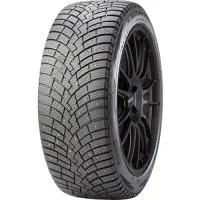
| The Pirelli Ice Zero 2 emerged as the top-performing studded tyre in the test. It offered good all-round performance, excelling in wet conditions for a studded tyre. Its ice grip, while good, wasn't as exceptional as some other studded tyres. The tyre performed well in the moose test, indicating good stability. However, it suffered from higher rolling resistance and noise levels compared to non-studded options. Despite these issues, its balanced performance across various conditions made it the top choice among studded tyres. Read Reviews |
1st: Continental WinterContact TS 870 | |
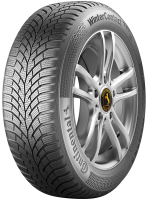
| The Continental WinterContact TS870 stood out as the best-performing Central European non-studded tyre in the test. It excelled in wet and dry conditions, offering performance close to that of summer tyres in these areas. It performed particularly well in the moose test and showed good aquaplaning resistance. However, it struggled more on ice and snow compared to Nordic tyres. The TS870 also demonstrated good rolling resistance and was rated highly for comfort and stability, making it a strong choice for milder winter conditions. Read Reviews |
1st: Continental VikingContact 8 | |

| The Continental ContiVikingContact 8 emerged as the overall winner of the test. This Nordic non-studded tyre successfully maintained the excellent ice and snow performance of its predecessor while significantly improving wet performance, particularly in aquaplaning resistance. It increased the top speed before aquaplaning by 5 km/h compared to the CVC 7, addressing a common weakness in Nordic non-studded tyres. The CVC 8 also excelled in rolling resistance, being the most fuel-efficient tyre in the test. It provided a good balance of comfort and stability on the road, representing a well-executed evolution that maintains strengths and addresses previous weaknesses. Read Reviews |
2nd: Nokian Hakkapeliitta 10 | |
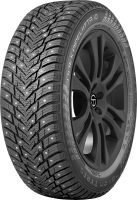
| The Nokian Hakkapeliitta 10, a studded tyre, offered excellent ice and snow grip and improved wet performance compared to previous models. It showed strong stability and performed well in the moose test. However, its major drawback was very high rolling resistance, which significantly impacted its fuel efficiency and lowered its overall score. The tyre also produced more noise compared to non-studded options. Read Reviews |
2nd: Michelin Alpin 6 | |
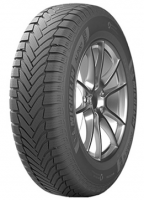
| The Michelin Alpin 6, a Central European non-studded tyre, matched Continental's TS870 in most areas. It excelled in wet and dry conditions, showing good stability in the moose test and strong aquaplaning resistance. However, like other tyres in its category, it struggled more on ice and snow. The Alpin 6 lost ground in the overall rankings due to higher rolling resistance compared to its main competitor, impacting its fuel efficiency. Read Reviews |
2nd: Goodyear UltraGrip Ice 3 | |
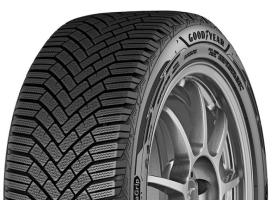
| The Goodyear UltraGrip Ice 3, a Nordic non-studded tyre, surprised with its well-rounded performance. While it didn't stand out exceptionally in winter conditions, with mediocre ice performance, it showed no significant weaknesses either. The tyre performed well in wet conditions and showed good stability in the moose test. It also offered good comfort and relatively low rolling resistance. The balanced nature of its performance across all test categories made it a strong contender, despite not being the absolute best in any single category. Read Reviews |
3rd: Pirelli Cinturato Winter 2 | |
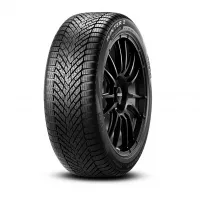
| The Pirelli Cinturato Winter 2, a Central European non-studded tyre, performed similarly to the Michelin Alpin 6. It showed good wet and dry performance, including strong results in the moose test and aquaplaning resistance. As expected for its category, it struggled more on ice and snow compared to Nordic tyres. The tyre offered a good balance of comfort and stability but had higher rolling resistance compared to some competitors. Read Reviews |
3rd: Continental VikingContact 7 | |
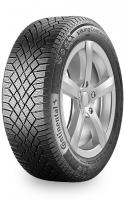
| The Continental ContiVikingContact 7, the previous year's winner, still showed strong performance, particularly in winter conditions. It maintained excellent grip on ice and snow, matching its successor in these crucial areas. However, its weaknesses became more apparent in this test, particularly in wet conditions and aquaplaning resistance. Despite these shortcomings, the CVC 7 still performed admirably overall, demonstrating good fuel efficiency and comfort. Its performance illustrates both the strengths of Continental's Nordic tyre design and the areas where improvement was needed in the newer model. Read Reviews |
3rd: Michelin X Ice North 4 | |
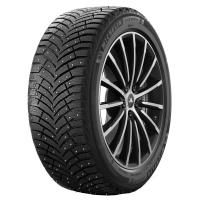
| The Michelin X-Ice North 4, a studded tyre, performed adequately but not exceptionally in winter conditions. It provided good ice and snow grip but didn't stand out among other studded tyres in the test. Its main drawback was very poor rolling resistance, which significantly lowered its overall rating and negatively impacted fuel efficiency. The tyre offered decent comfort and stability but couldn't compete with the top performers in the test.
Read Reviews The used version of the Michelin X-Ice North 4 studded tyre showed how performance changes over time. After 4,000 km, it still retained acceptable winter performance, especially on ice and snow. However, it struggled significantly with wet braking and aquaplaning resistance. The tyre's rolling resistance had improved with wear. This performance illustrates how studded tyres can maintain some winter capabilities even with significant wear. |
4th: Nokian Hakkapeliitta R5 | |
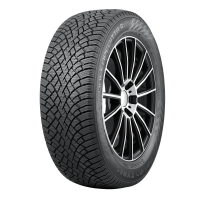
| The Nokian Hakkapeliitta R5, a Nordic non-studded tyre, showed improved performance in wet conditions compared to previous years while maintaining strong ice and snow capabilities. It demonstrated good stability and comfort on the road. However, the tyre had relatively high rolling resistance, which negatively impacted its fuel efficiency. Despite this drawback, its overall performance, especially in winter conditions, was commendable. Read Reviews |
4th: Bridgestone Blizzak Spike 3 | |

| The Bridgestone Blizzak Spike 3, a studded tyre, delivered the best ice grip in the test. It also performed well on snow. However, it struggled significantly on wet roads and had major issues with comfort, producing the highest noise levels in the test. Its rolling resistance was relatively low for a studded tyre. While excellent for pure winter conditions, its poor wet performance and comfort issues lowered its overall ranking. Read Reviews |
4th: Goodyear UltraGrip Performance 3 | |
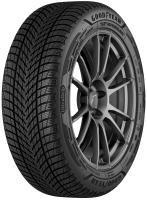
| The Goodyear UltraGrip Performance 3, a Central European non-studded tyre, showed strong performance in wet and dry conditions. It excelled in aquaplaning resistance and performed well in the moose test. However, like others in its category, it struggled on ice and snow. The tyre offered good comfort and stability but had average rolling resistance. While it performed well overall, it couldn't match the top performers in its category. Read Reviews |
5th: Michelin X Ice Snow | |
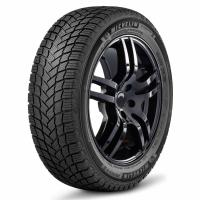
| The Michelin X-Ice Snow, a Nordic non-studded tyre, disappointed in this test. Its ice grip was significantly lower than expected for its category, and it showed the worst wet braking performance in the entyre test. However, it maintained decent snow performance and showed good stability. The tyre's rolling resistance was average. Overall, it underperformed compared to other Nordic non-studded tyres in the test. Read Reviews |
5th: Goodyear UltraGrip Arctic 2 | |
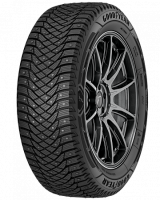
| The Goodyear UltraGrip Arctic 2, a studded tyre, showed good ice and snow grip but fell behind the best performers in these conditions. It struggled on wet roads and had very high rolling resistance, negatively impacting fuel efficiency. The tyre's comfort and stability were average. While it provided decent winter performance, it couldn't compete with the top studded tyres in the test due to its weaknesses in other areas. Read Reviews |
5th: Nokian Snowproof 2 | |

| The Nokian Snowproof 2, a Central European non-studded tyre, delivered typical performance for its category. It excelled in wet and dry conditions but struggled significantly on ice and snow. The tyre showed good stability and comfort on the road. Its rolling resistance was mediocre, impacting fuel efficiency. While it performed adequately for its intended use, it didn't stand out among its peers. Read Reviews |
6th: Continental IceContact 3 | |
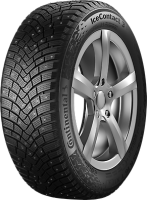
| The Continental IceContact 3, a studded tyre, showed a decline in performance compared to previous years. Its ice performance was notably worse than expected, and it didn't show significant advantages in other areas to compensate. The tyre had the highest rolling resistance in the test, severely impacting fuel efficiency. While it still provided decent winter performance, it fell short of expectations for a premium studded tyre. Read Reviews |
6th: Goodyear UltraGrip Ice 2 | |
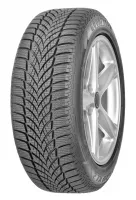
| The used Goodyear UltraGrip Ice 2, a Nordic non-studded tyre, demonstrated significant performance degradation after 3,800 km. Its ice and snow performance had deteriorated to potentially dangerous levels. Interestingly, it showed the lowest rolling resistance in the test due to its worn state. This tyre's performance highlights how Nordic non-studded tyres can lose their winter capabilities more rapidly than studded tyres with wear. Read Reviews |







